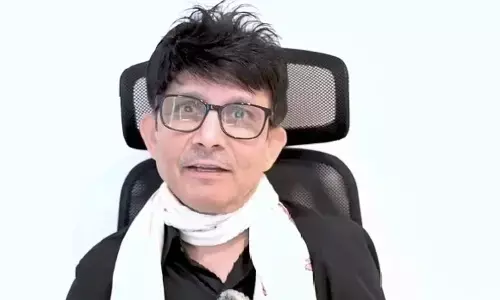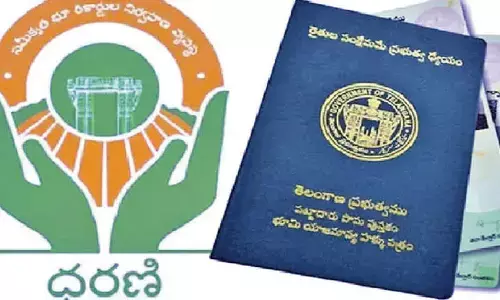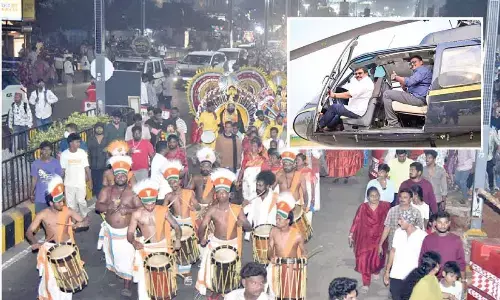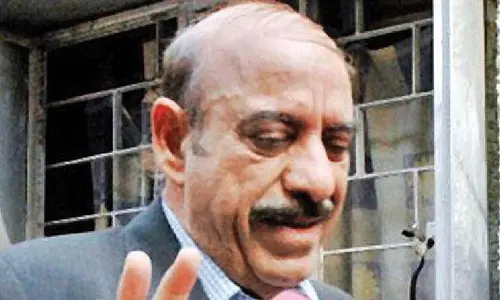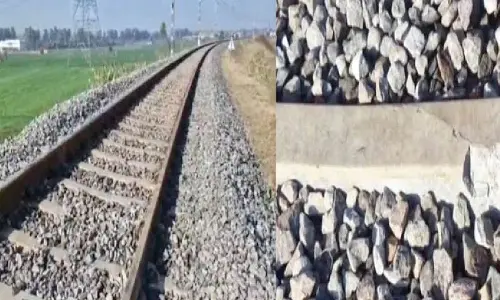Parliamentary practices in free fall
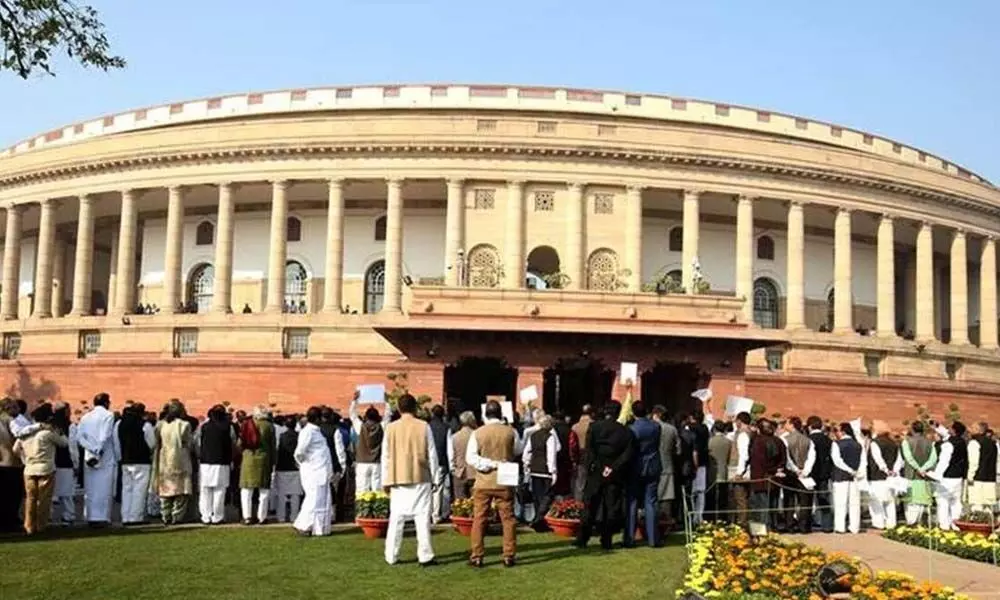
Parliamentary practices in free fall
President Ram Nath Kovind addressed the Constitution Day event in the Central Hall of Parliament on Friday and said on November 26, 1949, the Constituent Assembly adopted the Constitution of India, and it came into effect on January 26, 1950.
President Ram Nath Kovind addressed the Constitution Day event in the Central Hall of Parliament on Friday and said on November 26, 1949, the Constituent Assembly adopted the Constitution of India, and it came into effect on January 26, 1950. While January 26 is celebrated as Republic Day, since 2015, November 26 has been observed as the Constitution Day of India, or Samvidhan Divas.
He said the journey of development of India has been progressing on the strength of our Constitution. "72 years ago, in this Central Hall, the framers of our Constitution had adopted this document for a bright future of independent India. I believe that the development journey of India has been progressing on the strength of our Constitution."
It's time we take an impartial look at the journey of the functioning of India's legislature both the Parliament and the state legislatures and the outlook of various political parties and behavioural aspects of leaders and members. Some amount of chaos, some cacophony, some dissenting voices, some protests, some walk outs are necessary in a healthy and democracy.
But a cursory look at the way the disruptions have been taking place in the Parliament and State assemblies and the changing behavioural issues ring alarm bells. The floor of the supreme legislature and the State assemblies are losing their sanctity if not already lost. The language used by the honourable members has hit a new low. (This is of course a very mild word).
The speeches, the body language and the kind of language they are using is highly deplorable. From criticism of policies or taking on the government for trying to bulldoze certain laws because of its brute majority, a stage has come where the members of opposition are insulted by dragging the names of their wives, mothers or some other family members and making demeaning comments.
Between 1952 to early Eighties, the Parliament and legislatures used to witness high quality debates. It did not mean that the discussions used to be a calm affair. If one goes through the history of the proceedings in the Parliament, there were many occasions when the Parliament and Assemblies were rocked by disruptions. Removing members forcefully from the house and suspending them the minute they raise some issue was a rare thing. The Speakers used to be all powerful, accommodative and sticklers for rules and procedures.
According to Subhash C. Kashyap, former Secretary-General of 7th to 9th Lok Sabha and Secretary Lok Sabha Secretariat from 1984 to 1990, also a well-known political scientist and an expert on the Indian Constitution, once remarked that Constitutional Law and the culture of parliamentary practices started changing from fourth Lok Sabha. "It was politics with masks and gloves off," he said.
During the period of the first Prime Minister Jawahar Lal Nehru, the leader of the house used to be absent only when it was unavoidable. But Indira Gandhi attends only when she must, the former prime minister Atal Behari Vajpayee had commented once. Gradually things have gone from bad to worse now. Statistics indicate that between 2014-19, the time lost due to interruptions was 439 hours, 115 hours was lost following adjournments.
The 15th Lok Sabha worked for about 61 percent of scheduled time. It was also least productive as it was rocked by allocation of coal blocks, 2G spectrum and the demand for separate Telangana. Many bills like land acquisition, food security, companies and civil liability were passed without discussion. We have also seen how the Andhra Pradesh State Reorganisation Bill was passed by closing the doors of Lok Sabha, disconnecting live telecast and amidst utter chaos.
The legacy seems to be continuing even now. In the last seven years, we have seen how Opposition has been stalling the proceedings in Parliament and how regional parties in States have been doing everything to muzzle the voice of Opposition and decimate them. The anti-defection law has become redundant and no political party including the BJP is willing to go in for major reforms.
Unilateralism is fast creeping into decision making which is harmful for democracy. Huge amount of public money is being wasted. But no one seems to be willing to acknowledge this fact. They still claim they are in constitutional positions and acting accordingly. How? No one answers.
No political party wants to discuss any issue in depth and from various angles. Let us take the latest issue of Agri laws and the demand for MSP and the paddy controversy. Every party wants to make it a political issue. They are forgetting that this issue affects two-thirds of the nation.
It is a fact that the income of farmers is going down and is inadequate to sustain them. But there is no debate on the meagre incomes of the farmers. Instead, some ideas like free-market are brought to fore and the ruling party at the centre and the opposition parties convert this into poll related issues. No one seems to be interested in a meaningful discussion on this issue and come with a long-term policy.
MSP had come into existence when the country had faced famines in Sixties and was designed to build strategic food reserves. Union Government claims that their godowns are now full and stocks exceed buffer norms. It also feels that since MSP is not for all crops, there has been excessive production of certain crops only which affects the water table.
To some extent this is a fact. We are seeing how the farmers of the two Telugu states are on roads unable to sell their produce. We have seen how the TRS government in Telangana locked horns with the Centre and the slugfest is continuing while the farmers are suffering. The unseasonal rains add to their woes. No efforts are being made to find alternate methods to help the farmers by going in for Agri based industries or to explore export potential and take necessary steps in that direction.
One would really appreciate if this issue is debated in Parliament during the winter session and a solution was found. But if the mood in both the camps are any indication, such chances appear to be remote. Both the BJP and the TRS want to give political colour to it.
Though MSP has some positives there are more negatives and that most of the money allocated for MSP is diverted by the state governments, those who are opposed to MSP claim. Well diversion of money by state governments is a fact but it is not just restricted to MSP. Even panchayat funds are disappearing. Are we acting as per Constitution?
This is one serious issue which needs to be debated and discussed rising above party politics. But that does not happen. The Parliament is used for disruptions and not debates on such issues and at the end of day, the ruling party accuses opposition and vice versa for not discussing the issue and the poor farmers continue to commit suicides. The framing of constitution was not done for such activities.
Health and Education are other important growth engines which can help in propelling the country into a more robust economic situation. But they are not seen as growth engines. We are also badly lacking in research and development. We may claim a lot but what we are doing is not enough to propel the country into a different sphere of economy.
We may fix high targets but as long as we do not respect our Constitution and give top priority for the development of country and develop positive outlook, the celebrations like Constitution Day will become just formalities where people would garland the photo of Dr B R Ambedkar, offer flowers, speak good things saying that legislatures should not become dysfunctional and disperse only to make them dysfunctional.








